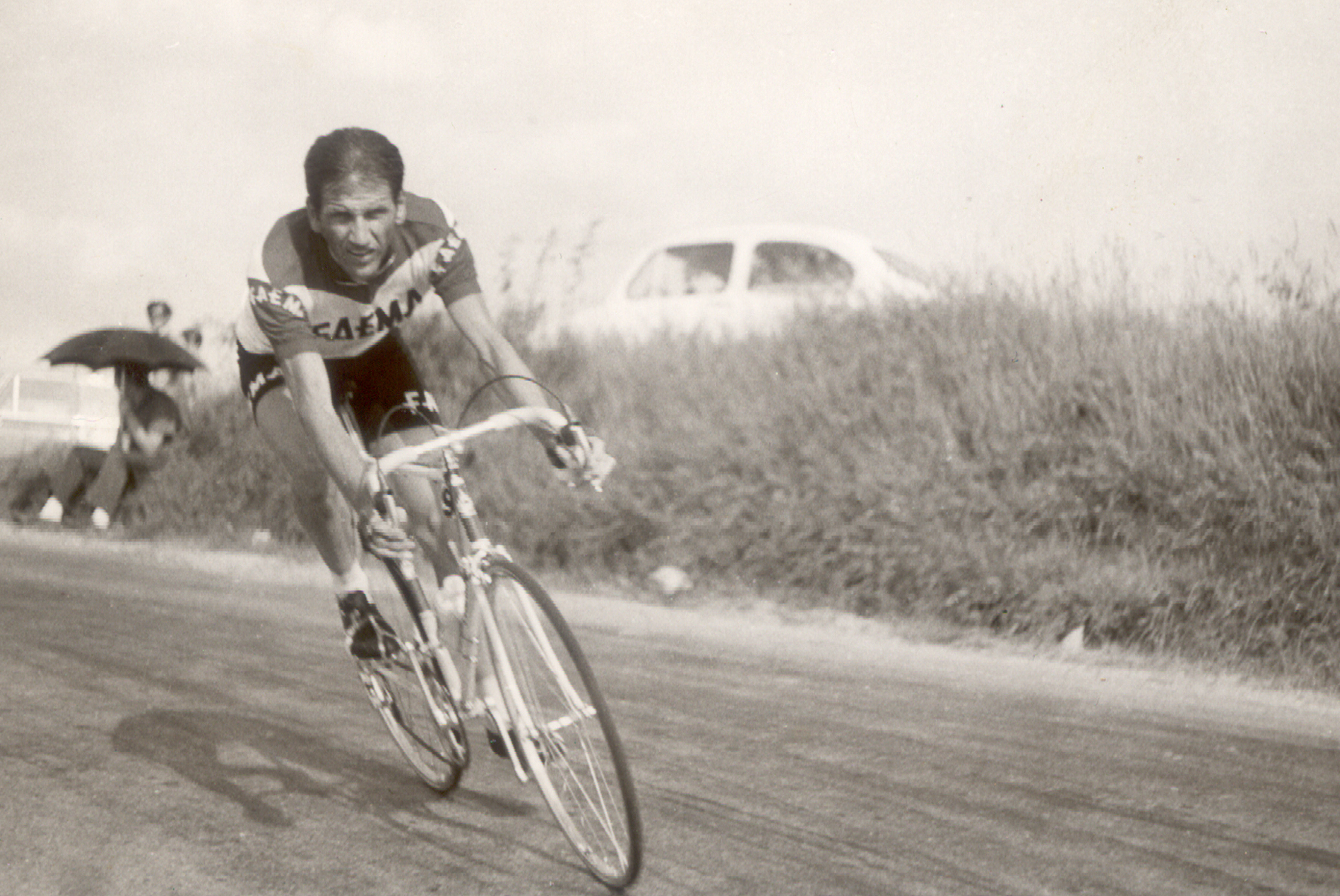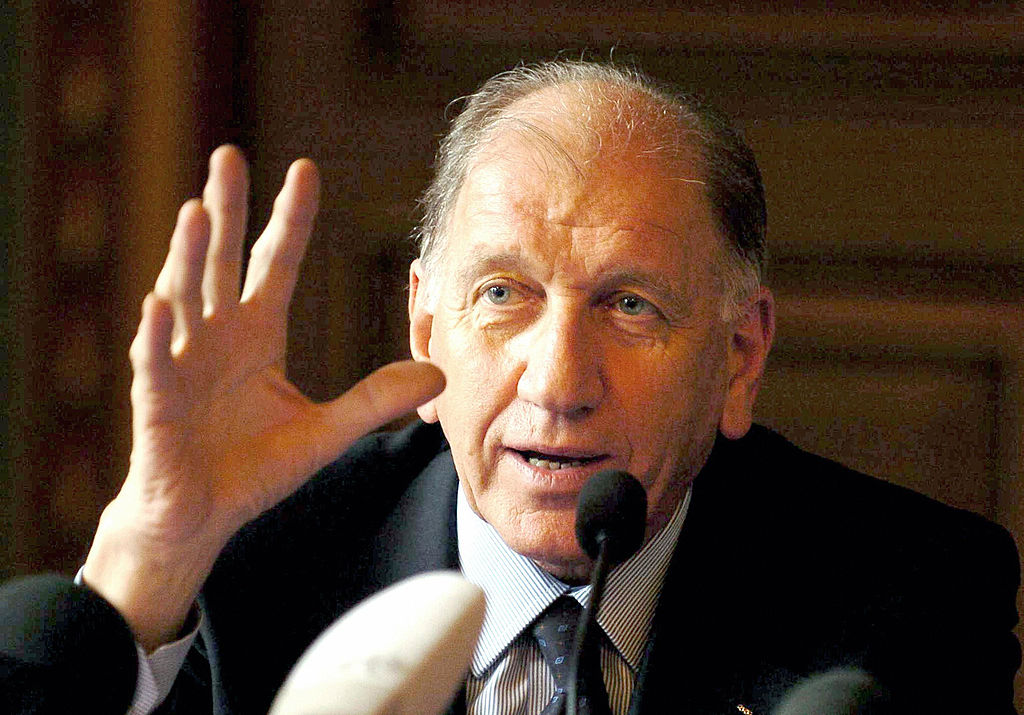'Elegance personified, on the bike and in his speech' - Vittorio Adorni's cycling life
Italian won Giro and Worlds, and mentored Gimondi and Merckx

The late Vittorio Adorni, who died on Christmas Eve, turned professional with Learco Guerra’s Vov team in 1961. He raced with and mentored Felice Gimondi at Salvarani, and then did the same with Eddy Merckx at Faema. In his subsequent broadcasting career, Adorni was part of a RAI commentary booth that brought Francesco Moser, Giuseppe Saronni and Marco Pantani career into the living rooms of millions of Italians.
His was, in the words of La Gazzetta dello Sport, “a life among the giants,” but then Adorni was himself a titan, on and off the bike. He won the Giro d’Italia in 1965, but his greatest day came three years later in Imola, when he claimed a remarkable solo victory at the World Championships.
The Merckx era had already begun, but Adorni’s victory was more redolent of its sepia-tinted heroic age. As his compatriot Ercole Baldini had done a decade earlier, Adorni infiltrated a dangerous early break, and he proceeded to solo clear with 90km remaining, claiming the rainbow jersey from Herman Van Springel by a record margin of 9:50.
That afternoon, future Italian national coach Davide Cassani was a seven-year-old straining to force a way through the crowds on the circuit for a view of the lone man in the blue jersey. “Vittorio was elegance personified, on the bike and in his speech,” Cassani wrote this week.
The feat immortalised by another sadly departed giant, the journalist Gianni Mura, in the pages of the following day’s La Gazzetta dello Sport. In cycling’s answer to Jimmy Breslin’s gravedigger column, his piece was centred on the nervous wait of Adorni’s wife Vitaliana at the finish line in Imola’s autodromo.
By 1968, of course, Adorni felt like a part of the family for many Italians. His ability to analyse races smartly and cogently had already made him a fixture on RAI’s new Processo alla Tappa programme during the Giro, while that year he would make his first foray into the light entertainment schedule as co-host of the ‘Ciao Mamma’ variety show with actress Liana Orfei.

Born in San Lazzaro Parmense in 1937, Adorni turned professional in 1961 with Vov, making his Giro debut that same season. A year later, he would place fifth overall after winning the tough stage to Aprica in the final week, and he would be a fixture at the business end of the corsa rosa for the remainder of his career, winning eleven stages and spending 19 days in the pink jersey.
The latest race content, interviews, features, reviews and expert buying guides, direct to your inbox!
In 1963, Adorni won two more stages, including the opening stage in Potenza and the Treviso time trial, but he had to settle for second behind Franco Balmamion. He had another brief stint in pink in 1964, but Jacques Anquetil would claim the spoils in Milan.
Adorni would not be denied at the 1965 Giro. At the head of a strong Salvarani team that included the neo-professional Gimondi, Adorni was utterly dominant. He seized definitive control of the maglia rosa by winning the mid-race time trial to Taormina, and his margin of victory in Milan would be some 11:26 over Italo Zilioli, while Gimondi placed third.
Gimondi’s time would come at the subsequent Tour. Adorni went to France as the nominal leader, but when he was forced to abandon on stage 9, Gimondi stepped up to the mark, moving into yellow and holding it all the way to Paris.
After guiding Gimondi in the early years of his career, Adorni spent a season alongside the emerging Merckx at Faema in 1968. He placed second overall to his young Belgian teammate at the Giro, with his former protégé Gimondi in third. Adorni’s greatest contribution to Merckx’s success may have come behind the scenes. As well as his advice on when to attack on the road to Tre Cime di Lavaredo, Adorni had given Merckx strict instruction on dietary and training habits.
The journalist Alessandra Giardini recounted one early exchange this week. “Not even my father treated me like this,” Merckx complained at his first Faema camp. “Your father wasn’t a bike rider,” was Adorni’s succinct response.
“At the first training camp, he explained a lot of things to me, including how to attack. He signalled with his head to make me understand the right moment,” Merckx told La Gazzetta. “Tactically, he understood races perfectly, so he taught me a lot of things, like how to manage my effort.”
Adorni spent two more seasons in the gruppo at Scic, adding Tour de Suisse victory in 1969, and he finished his career with sixty wins, thanks largely to his gifts of endurance. His relative lack of finishing speed denied him a better Classics palmarès, though he was second at Milan-San Remo in 1965 and three times on the podium of Liège-Bastogne-Liège, as well as a Worlds silver medallist behind Jan Janssen in Sallanches in 1964.
In retirement, Adorni briefly returned to Gimondi’s side during a three-year stint as a directeur sportif at Salvarani and Bianchi. He would subsequently serve as a co-commentator alongside the legendary Adriano De Zan for RAI television.
Later in life, Adorni was the head of the UCI Professional Cycling Council, and he played a key role in building consensus among teams and race organisers as the ProTour (now WorldTour) took shape in the mid-2000s.
In 2019, Adorni was inducted into the Giro d’Italia Hall of Fame. In November, he gave his last interview to La Gazzetta on the occasion of his 85th birthday. “Cycling is the most beautiful sport,” he said. “Just look at the enthusiasm in the eyes of the public when the riders go by and tell me it isn’t so.”
Vittorio Adorni was born in San Lazzaro Parmense, Italy on November 14, 1937. He died in Parma, Italy on December 24, 2022.

Barry Ryan was Head of Features at Cyclingnews. He has covered professional cycling since 2010, reporting from the Tour de France, Giro d’Italia and events from Argentina to Japan. His writing has appeared in The Independent, Procycling and Cycling Plus. He is the author of The Ascent: Sean Kelly, Stephen Roche and the Rise of Irish Cycling’s Golden Generation, published by Gill Books.